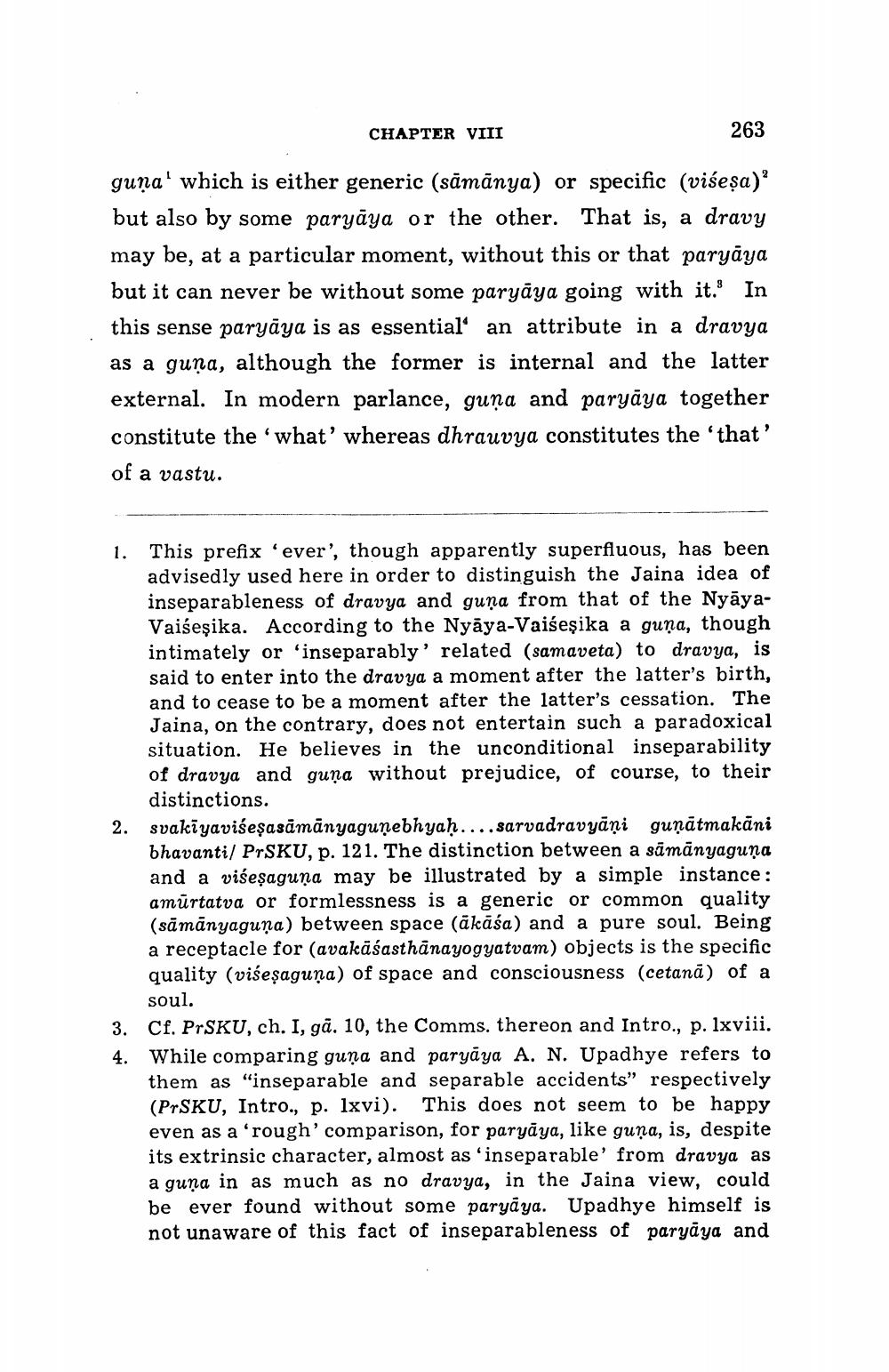________________
CHAPTER VIII
263
guņa' which is either generic (sāmānya) or specific (viseșa)? but also by some paryāya or the other. That is, a dravy may be, at a particular moment, without this or that paryāya but it can never be without some paryāya going with it. In this sense paryāya is as essential an attribute in a dravya as a guņa, although the former is internal and the latter external. In modern parlance, guna and paryāya together constitute the “what' whereas dhrauvya constitutes the 'that' of a vastu.
1. This prefix 'ever', though apparently superfluous, has been
advisedly used here in order to distinguish the Jaina idea of inseparableness of dravya and guņa from that of the NyāyaVaišeşika. According to the Nyāya-Vaišeşika a guna, though intimately or 'inseparably' related (samaveta) to dravya, is said to enter into the dravya a moment after the latter's birth, and to cease to be a moment after the latter's cessation. The Jaina, on the contrary, does not entertain such a paradoxical situation. He believes in the unconditional inseparability of dravya and guna without prejudice, of course, to their distinctions. svakiyavišeşasāmānyagunebhyaḥ.... sarvadravyāni gunātmakāni bhavanti/ PrSKU, p. 121. The distinction between a sāmānyaguna and a višeşaguna may be illustrated by a simple instance: amūrtatva or formlessness is a generic or common quality (sāmānyaguna) between space (ākāśa) and a pure soul. Being a receptacle for (avakāśasthānayogyatvam) objects is the specific quality (viśeșaguna) of space and consciousness (cetanā) of a
soul. 3. Cf. PrSKU, ch. I, gā. 10, the Comms. thereon and Intro., p. lxviii. 4. While comparing guna and paryāya A. N. Upadhye refers to
them as "inseparable and separable accidents" respectively (PrSKU, Intro., p. lxvi). This does not seem to be happy even as a 'rough' comparison, for paryāya, like guņa, is, despite its extrinsic character, almost as 'inseparable' from dravya as a guna in as much as no dravya, in the Jaina view, could be ever found without some paryāya. Upadhye himself is not unaware of this fact of inseparableness of paryāya and




